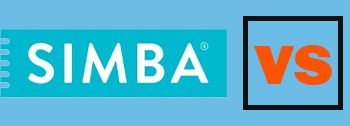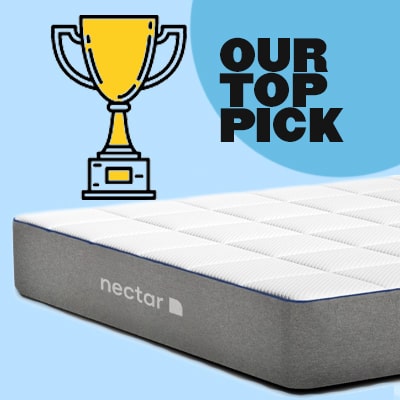The subject of polyester and microfiber is intriguing. Why do I hear you ask? Because both products are essentially the same but have different properties and benefits to the user.
We all know that polyester has been around for decades. I’m sure you had had polyester clothes or clothes containing polyester fabrics from childhood.
But, only in recent times has microfiber become a specific product. Microfiber towels are commonplace in general use, from automobile cleaning clothes to cleaning cloths around the home and even as face cloths in the bathroom.
Polyester has consistently been recognised as a durable product and is manufactured at a relatively low cost while giving the appearance of more expensive material.
Polyester can be woven with other fabrics such as cotton and was commonplace in shirt manufacturing through the seventies and eighties.
Polyester has never really lost its favour as a material, it’s just consumer preferences that have changed, and cotton with other weaves have become the product of choice.
What’s the Difference Between Polyester and Microfiber?
It’s all about breathability and how the product is woven and applied to its particular area in the industry.
Microfiber, albeit a polyester product, is breathable and absorbent. This is why we see a boom in microfiber towels being used in the auto detailing industry.
They are the perfect medium for picking up minuscule dust particles and are touted as a perfect towel for detailing paintwork and cleaning car interiors.
But that’s only part of the story. Microfiber is used in many more products such as bedding sheets and duvets, the super-soft feel and breathable nature of the properties of this artificial fabric are pretty outstanding.
When microfiber is woven, the weave is not as tight as standard polyester allowing the product to breathe easily.
This means on a hot day. Microfibers will keep you cool when wearing them as an out garment.
This is the very reason microfiber sheets are perfect for those of us who are always complaining of being hot through the night.
The biggest drawback with microfiber and polyester is it doesn’t wick sweat away from the body.
Durability
Because polyester and microfiber are synthetic materials, they are highly durable. They are almost wrinkle-free but remain soft to the touch and comfortable to wear or lay on through the night when woven as a bedsheet.
Tactile Experience of Microfiber
Microfiber, as suggested by its name, uses fragile fibres. When the microfibers are woven and manufactured into bedsheets, it can feel a little harsh and challenging.
After washing, the fabric softens, becoming a joy to use and offer a tactile experience to match more expensive products.
It’s important to note that microfibers need care despite their durability. Without care, the microfibers lose some of their softness.
This can be restored by following the washing instructions sent into the material. If cared for properly like any other materials, microfiber can have a silky feel. Hence making this a perfect choice for sheets.
If you are looking for warmth, then polyester could be the fabric you have been searching for. Polyester itself is a warm material due to the molecular make-up of the strands and tight weave keeping air from circulating.
Microfibers can also be warm when used as bedsheets and trap air that acts as an insulating barrier. Microfiber is the perfect choice for those chilly winter nights.
Caring For Your Polyester and Microfiber
Because polyester and Microfiber are synthetic products primarily made from oil and other magic, they are easy to care for.
They should be washed by the manufacturer’s instructions: a normal wash cycle using regular detergents used for fabric care.
However, heat can damage both products due to the molecular structure of the polyester stands being similar to nylon.
The excellent news is polyester and microfiber are lint-free, which makes for ease of maintenance. Washing with similar lint-free items is always a good idea.
Interestingly, microfiber is not shrinking free due to the varying manufacturing process, and greater care should be taken when washing.
Drying usually is fast but should never be dried in a tumble dryer. The products will lose their properties if exposed to the heat of a tumble dryer for an extended period.
What’s Good and bad about Polyester?
On the positive side:
- Polyester is easy to wash and maintain
- Polyester has some wicking abilities
- Stain and wrinkle-resistant
- high durability
Negatives:
- Less breathable than microfiber
- Not as soft as other materials
- Can’t tolerate heat
- It is flammable
If you are looking for something very soft to the touch, polyester bed linen may not be your best choice.
Let’s look at microfibers best attributes:
- Very easy to maintain
- Soft-touch almost silky when washed
- Extremely absorbent
- Warm and breathable
Negatives
- Shrinkable
- More delicate than polyester
- Can wrinkle
- Not heat-tolerant like its stablemate
To minimise wrinkles in microfiber, it is recommended to remove directly from the washing machine when the cycle has finished and air dry.
Final thoughts
When considering either product for bedding, both have significant shortcomings, and to be fair, they have some significant pluses on their side.
Both products have been in use for decades in some guise or other but, there still seems to be some reluctance to use the microfiber product to its full potential.
This is why. Polyester is primarily made from crude oil and petroleum, and it is manufactured in the same way as many plastics. That’s why it’s a resistant product.
On the upside, polyester and microfiber have a place in the market. Thousands of people enjoy it every night as they snuggle up in their warm cosy bed cosseted by the silky feel of microfiber sheets and duvets.
There is no doubt that polyester was revolutionary when it was manufactured. All of us have either been wearing polyester or walking on this versatile manufactured product.

 Nectar Mattress
Nectar Mattress 


